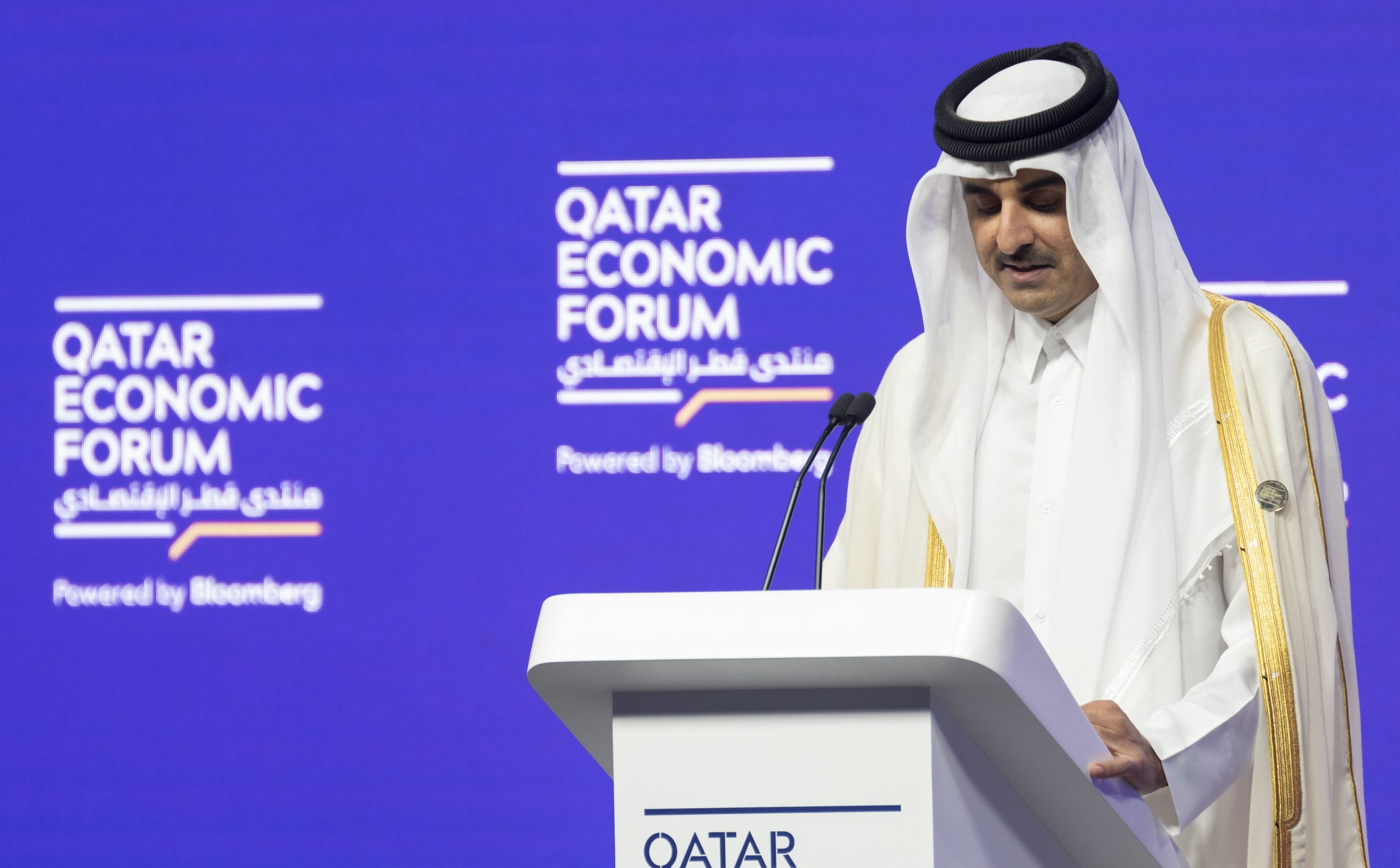Powered by Bloomberg, the event last year gathered at least 1000 participants.
The Qatar Economic Forum (QEF) is returning to Doha between 23-25 May and will bring together key figures from around the world to discuss the latest challenges and trends in the global economy.
The date of this year’s event was announced by the Chairperson of the Supreme Committee Organising the Qatar Economic Forum Sheikh Ali Al-Thani in an interview with state news organisation (QNA).
Powered by Bloomberg, the event last year gathered at least 1,000 participants including more than 75 keynote speakers, including entrepreneurs, business figures, diplomats, and CEO’s.
Among the most notable figures that attended last year’s event was Elon Musk, who has since acquired Twitter.
Doha News sat down with numerous figures at the QEF, including former United States Secretary of Treasury Steven Mnuchin, Qatar’s World Cup CEO Nasser Al Khater, Egypt’s Finance Minister Mohamed Maait among others.
Commenting on the QEF, Sheikh Ali said that the event is an “important” dialogue on issues concerning the global economy and economic cooperation, noting it is also “a catalyst for cooperative agreements”.
“Any event or disturbance that occurs in one part of the world has successive consequences at the global level. Similarly, holding a dialogue here in the heart of the Middle East enables us to connect thought leaders and decision makers from different societies to reach globally applicable solutions for a secure and sustainable future for all,” Sheikh Ali told QNA.
Last year’s QEF took place just months ahead of the 2022 FIFA World Cup, the first such event to take place in the Middle East, which dominated discussions.
Sheikh Ali noted that now that the event has wrapped up “better conclusions are now available” that can inspire development plans and solutions for economic diversification in Qatar.
Meanwhile, the ongoing Russian war on Ukraine is likely to be among the key topics for this year’s conference as it has continued to contribute to economic challenges around the world, especially in Europe which has found itself grappling with an energy crisis.
During his opening speech last year, Qatar’s Amir Sheikh Tamim bin Hamad Al Thani stressed that human values and peacekeeping were primary to dealing with issues in today’s world.
“Supporting the economy, investment and innovation in parallel with consolidating shared human values and peacekeeping is the way to build the necessary capacities in order to transcend crises and overcome challenges,” said Sheikh Tamim.
Addressing world leaders and key business figures, the amir added that the ongoing war in Ukraine has had a “devastating effect” on the European continent.
With concerns over energy and food security on the rise, the amir warned that the economic setback “could be a prelude to an inflationary recession that the world has never seen” before since the period between 1976 and 1979.
“There are issues that have no economic solution, these include the war and its devastating consequences on Ukraine and many other countries and peoples. The solution, in this case, can only be politically oriented,” noted the amir.







